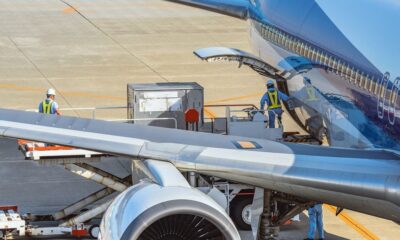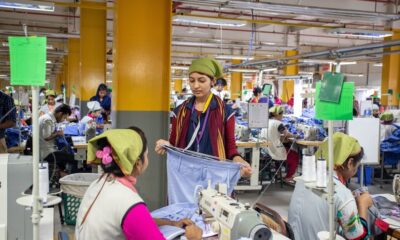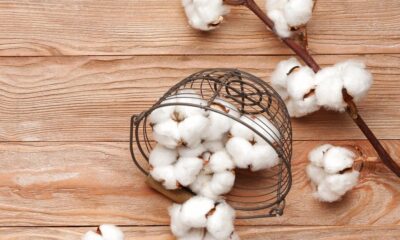Fashion
Australia, New Zealand to fast track single economic market agenda
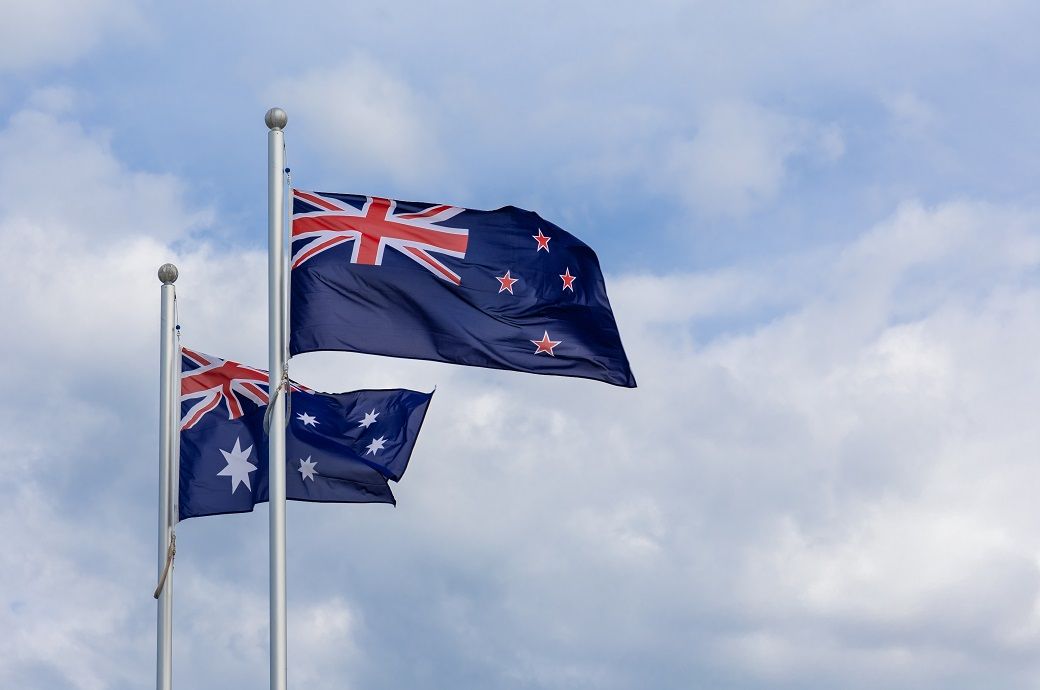
Both sides agreed to coordinate regional and global trade engagement, including joint action on World Trade Organization (WTO) reforms ahead of the upcoming Ministerial Conference, and collaboration through various multilateral agreements, a joint statement issued after the meeting said.
Australia and New Zealand recently agreed to fast-track work on a single economic market, sign a pact for regulatory and standards alignment, and deepen economic integration by strengthening the Trans-Tasman Mutual Recognition Arrangement.
Trade ministers from both sides met in Monarto, and agreed to coordinate joint action on WTO reforms and collaborate through various multilateral agreements.
New Zealand Trade and Investment Minister Todd McClay and Australian Trade and Tourism Minister Don Farrell concluded meeting in in Monarto, South Australia.
“This is about making it simpler for businesses to trade, invest and grow, not just between our two countries but across the wider region,” McClay said.
Fibre2Fashion News Desk (DS)
Fashion
Interjeans portfolio continues to expand with heritage brand Belstaff

Published
January 16, 2026
New addition at Interjeans: following last year’s arrival of German athletic-luxury brand Bogner, the San Marino-based company in Rovereta, founded in 1992 by Andrea Belletti, is expanding its brand portfolio and has outlined its growth plans to FashionNetwork.com.
“Last November we signed a distribution agreement for the Italian market with Belstaff: a storied brand with motorcycling roots, founded in England in 1924, which I am sure will be a must-have once again. For 2026 we expect encouraging results, driven in particular by this addition,” said Belletti.
“As for Interjeans, we are not considering any company-owned stores beyond the one in Riccione,” the manager continued. “We remain true to our roots, focusing on distribution, but we would like to develop a shop-in-shop format with key customers that would allow us greater control over the product assortment, layout and communication. We are currently present with Lyle & Scott and Superdry in Rinascente and Coin, via concessions, but we would like to extend this format to include Belstaff as well,” Belletti continued.
Interjeans, which closed 2025 with turnover of €39 million, distributes in Italy the brands G-Star Raw, Lyle & Scott, Dr Denim, Karl Lagerfeld (three lines), Bogner, O’Neill, the Greek womenswear brand BSB, and Superdry.
Julian Dunkerton, CEO of the British clothing brand he founded in 2003 in Cheltenham—a label that blends American preppy-vintage style with English elegance—presented the new Superdry collection. It stands out for its clean lines, perfect balance and refined functionality.
Speaking to FashionNetwork.com, the entrepreneur revealed he is very pleased with the results achieved after a major reorganisation.
Dunkerton described it as a “massive shake-up” that has returned the company to profit.
“We have worked hard on the collections and distribution, reviewed the structure, and delisted from the stock market. Today, I feel we are on the right path: there is consistency and a clear awareness of who we are. Our presence at Pitti is fundamental; it is the most important international event in the industry and for us it truly represents the place to be. Next year, I would like to double the size of our space and bring our womenswear offer to Florence as well, which now accounts for 50 per cent of the total. In addition, we plan to open 24 Superdry stores in 2026 with a completely revamped store format that emphasises our British heritage and offers a lighter, brighter, higher-quality aesthetic. We will operate through both franchise agreements and direct management, predominantly in the UK,” concluded the Superdry founder.
This article is an automatic translation.
Click here to read the original article.
Copyright © 2026 FashionNetwork.com All rights reserved.
Fashion
At Balenciaga, Pierpaolo Piccioli pushes the boundaries between sport and tailoring

Published
January 16, 2026
Pierpaolo Piccioli seems intent on exploring how far the relationship between sport and tailoring can be pushed. On Thursday, the French fashion house unveiled and launched for sale, on its website and in its boutiques, a collaboration with the NBA, the U.S. basketball league. At the same time, ahead of the Milan and Paris Fashion Weeks, it presented its lookbook for Autumn 2026.
“I believe that sport is one of the most powerful ways of expressing values such as excellence, integrity and respect. On a pitch or court, people from different backgrounds, cultures and abilities come together under the same rules and with the same goals,” said the creative director of the Kering group house, in a press release.
“This shared space creates a heightened sense of connection and focus, reminding us of the discipline, commitment and intensity that define sport at its highest level.”
For the NBA line, that commitment is expressed through key sportswear pieces reinterpreted in materials such as leather, satin, cotton poplin and Japanese denim, and, in addition to black, in the NBA’s historic colours: red, blue and white. The brand adopts sporting codes by marking T-shirts and coach jackets with the number 10, a nod to the address of its headquarters on Avenue George V in Paris, or with a stylised “B” on the back or over the heart.
But sport permeates the Balenciaga universe well beyond this. The brand’s Autumn 2026 proposal, captured in the streets and métro of Paris by photographer Robin Galiegue, explores the potential of imposing tailored pieces, echoing the house’s past designs, such as cashmere capes and neo-gazar coats, which the creative director is working to revive.

Today, Piccioli goes further and pairs them with techwear pieces. Heavy wool coats and oversized leather jackets are worn over a shorts-and-leggings duo crafted from Probody fabric, which offers moisture-wicking, breathability and antibacterial properties. In the age of wellbeing, this trend runs through most of the looks in the Autumn 2026 collection.
The designer has not forgotten the importance of accessories, either. While these creations are designed for training or yoga, they are also accompanied by a new bag model, the 7, patinated crystal jewellery and exceptional shoes from a collaboration with Manolo Blahnik.
This article is an automatic translation.
Click here to read the original article.
Copyright © 2026 FashionNetwork.com All rights reserved.
Fashion
Xreal files patent suit against rival smart glasses maker Viture
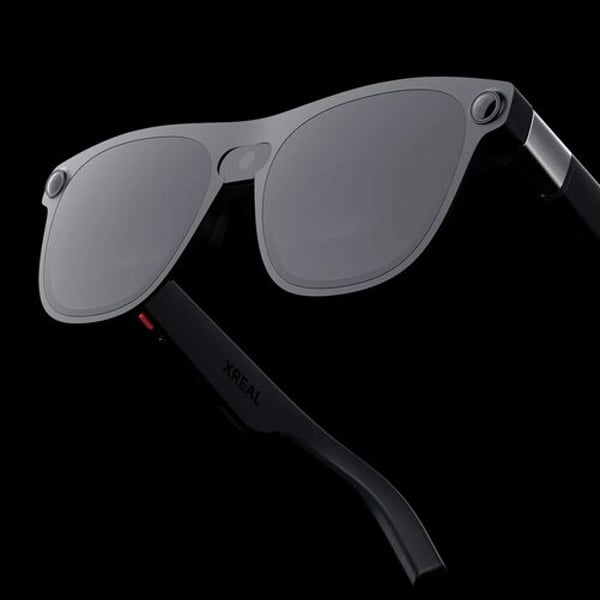
By
Bloomberg
Published
January 15, 2026
Xreal Inc., a Chinese pioneer in smart glasses, is suing Viture Inc. for patent infringement in the US, arguing its rival has unfairly capitalized on Xreal’s extensive research and investment in the segment.
The lawsuit, filed Thursday in federal court in eastern Texas, accuses San Francisco-founded Viture of unlawfully incorporating Xreal’s patented inventions into smart glasses such as the Luma Pro, Luma Ultra, and a high-end pair called The Beast.
Both Xreal and Viture manufacture augmented reality, or AR, glasses that plug into devices like smartphones and laptops, offering viewers a large virtual display for watching movies or handling productivity tasks. Technical specifications like display resolution and field of view- the size of the augmented world you can see at any given time- are often very similar between the two brands.
Their US legal battle comes ahead of what is expected to be a pivotal moment for the segment, with Apple Inc. expected to make its category debut as soon as this year, Bloomberg has reported.
Xreal holds over 800 patent and patent applications worldwide, including dozens in the US and Europe, it said in a statement Thursday announcing the lawsuit. “By comparison, Viture owns approximately or fewer than 70 patent and patent applications globally, with none in the United States or Europe,” it added.
“The lawsuit is not merely about enforcing a single patent,” Xreal said in the statement. “It is about stopping a pattern of intellectual property infringement that undermines the integrity of innovation and endangers continued technological development in this industry.”
Xreal holds more global market share than Viture in the AR eyewear category, according to research firm IDC. But both companies lag far behind Meta Platforms Inc., which has come the closest to mainstream success with its Ray-Ban line of smart glasses.
At the CES technology trade show earlier this month, Xreal unveiled a new entry-level pair of glasses and a co-branded set of glasses developed with Taiwan’s Asustek Computer Inc. It also announced that it’s extending a partnership with Alphabet Inc.’s Google.
Xreal said in the statement that these and other collaborators are “owed confidence that their co-developed products will not also be threatened by infringers attempting to benefit from infringement or undermined by unauthorized usage of IP.”
-

 Politics1 week ago
Politics1 week agoUK says provided assistance in US-led tanker seizure
-

 Entertainment1 week ago
Entertainment1 week agoDoes new US food pyramid put too much steak on your plate?
-

 Entertainment1 week ago
Entertainment1 week agoWhy did Nick Reiner’s lawyer Alan Jackson withdraw from case?
-

 Business1 week ago
Business1 week agoTrump moves to ban home purchases by institutional investors
-

 Sports5 days ago
Sports5 days agoClock is ticking for Frank at Spurs, with dwindling evidence he deserves extra time
-

 Sports1 week ago
Sports1 week agoPGA of America CEO steps down after one year to take care of mother and mother-in-law
-

 Business1 week ago
Business1 week agoBulls dominate as KSE-100 breaks past 186,000 mark – SUCH TV
-

 Tech3 days ago
Tech3 days agoNew Proposed Legislation Would Let Self-Driving Cars Operate in New York State




